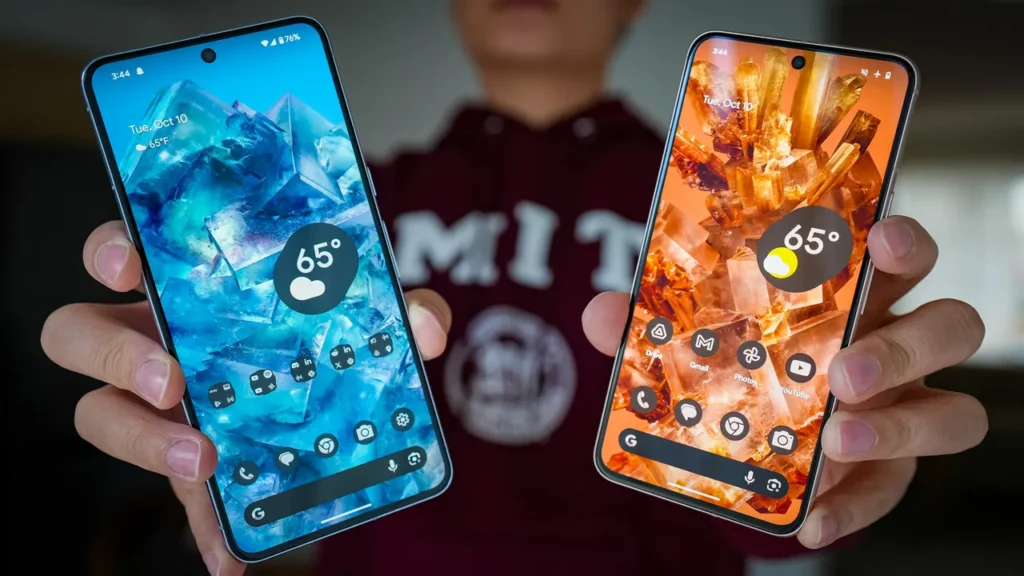A closer look at the Android 15 Beta 4 code has revealed some fascinating information on Google’s planned Pixel “Satellite SOS” services. The beta version of the software was released on July 18. Despite the fact that customers can access this service for free for the first two years, it appears that there might be fees beyond that. As the precise financial facts of the service’s future prices are yet unknown, this disclosure has generated a great deal of curiosity and some uncertainty among users and industry experts alike.
Particularly in situations where conventional cellular networks are unavailable, the Satellite SOS capability is intended to greatly improve emergency communication capacities. Users in underserved or distant locations where traditional connectivity is rare may find this to be of great value. When users are outside of the coverage area of conventional mobile networks, the feature makes use of satellite technology to guarantee that they can still contact emergency services and send distress signals.
According to the code examined in Android 15 Beta 4, the Satellite SOS service will involve the transmission of a range of personal information to emergency responders. This includes essential details such as the user’s name, email address, phone number, location, device information, and emergency contact information. The transmission of this data to satellite service providers is necessary to establish a connection and facilitate the SOS function. The reliance on satellite connectivity underscores the feature’s role in bridging the communication gap during critical situations when conventional methods fail.
A notable aspect of the Satellite SOS feature is that it will require users to update their devices to Android 15 to access it. This means that users with older Pixel models, such as the Pixel 8 and Pixel 8 Pro, will need to upgrade their software to benefit from this new feature. The Pixel 9 series, however, is expected to come with the Satellite SOS service pre-installed, providing new device users with immediate access to this emergency functionality without the need for additional updates.
Early walkthroughs and demonstrations of Android 15 Beta 4 have provided additional insights into how the Satellite SOS feature will function. Users will be prompted to ensure a clear view of the sky to activate the service, a requirement stemming from the need for satellite visibility to establish a connection. The activation process involves an on-screen animation that helps users locate the appropriate satellite, guiding them through the steps necessary to initiate the SOS signal. This process highlights the importance of satellite alignment and connectivity in ensuring the effectiveness of the emergency feature.
Once the SOS feature is activated, users will be able to maintain text-based communication with emergency services and their family members. This functionality allows for ongoing updates and coordination during emergencies, helping users to stay informed and provide critical information as needed. The ability to send text messages rather than relying solely on voice calls provides a practical solution for situations where voice communication might be challenging or impractical.
Apart from the revisions related to Satellite SOS, Android 15 Beta 4 brought about a number of other noteworthy improvements and modifications. The switch from PNG-based to vector-based emoji fonts is one of the most noticeable modifications. Emoji scaling is addressed with this modification, which guarantees that emojis retain their quality and clarity even when their sizes are changed. By avoiding distortion or blurring, the switch to a vector format gives consumers a more unified and aesthetically pleasing experience across a range of devices and screen sizes.
Improved app activity management and Private Spaces are two more significant features in Android 15 Beta 4. The upgraded software allows the operating system to keep programs running just when necessary thanks to improved resource allocation. Because it minimizes superfluous background activity and makes sure apps stay responsive when users engage with them, this optimization contributes to better system performance and longer battery life. Google’s continuous attempts to improve the operating system’s efficiency and user experience are reflected in these changes.
Important questions and considerations for users who might depend on this feature in an emergency have been brought up by the revelation of possible future prices for the Satellite SOS service. Even if the first phase of the service is free, consumers’ decisions about whether and how to use it may be impacted by the ambiguity surrounding potential future fees. Updates and explanations regarding the pricing structure and operation of new features such as Satellite SOS are expected as Google works on developing and improving Android 15.
With a combination of useful enhancements and intriguing new features, Android 15 Beta 4 is a major advancement in the evolution of Google’s operating system. Google’s dedication to developing its software and enhancing the user experience is demonstrated by the addition of the Satellite SOS feature and improvements to the quality of emojis and app activity management. With the imminent release of Android 15, users can anticipate additional information and updates to assist them in making well-informed choices on their devices and essential features.
If you like the article please follow on THE UBJ.
